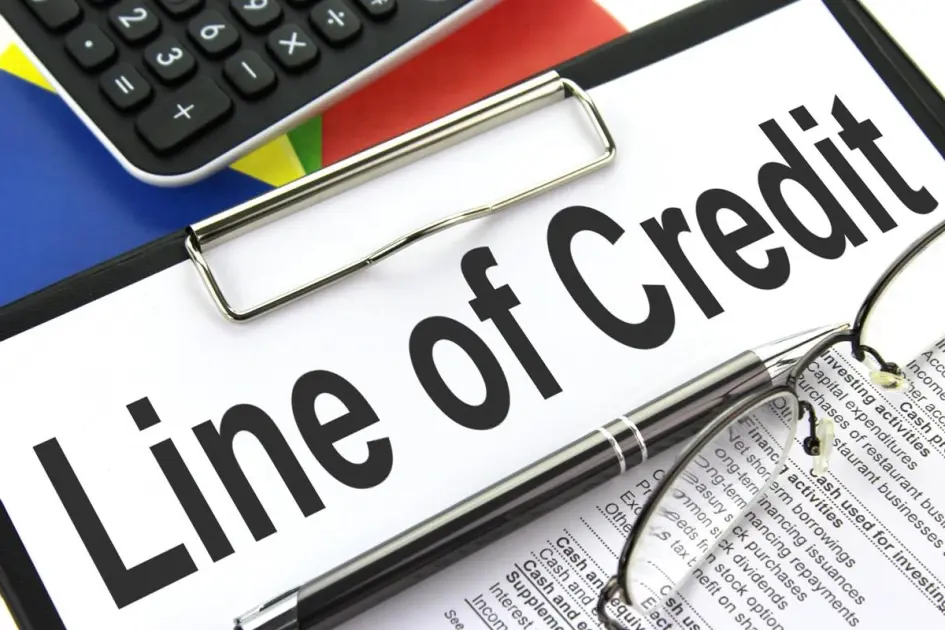Having access to the appropriate tools and knowledge can be crucial on the path to financial stability and prosperity. In order to assist people and organizations in navigating the complex world of credit lines, Credit Line Experts in Orlando, Florida, comes into action.
A credit line, also known as a credit limit or credit facility, is an essential financial tool that can help manage cash flow, finance business expansion, or pay for unforeseen needs. However, you need knowledge and direction to know how to use it to your benefit.
Credit Line Experts is not your standard source of financial services. They are a group of seasoned experts committed to assisting you in utilizing the power of credit.
What is the meaning of credit line?

A credit line, also known as a credit limit or credit facility, is a pre-approved amount of money that a financial institution, such as a bank or credit card company, is willing to lend to a borrower. This credit limit represents the maximum amount of funds that a borrower can access or use within a specified period, usually on a revolving basis.
Here are a few key points to understand about credit lines:
Pre-approved Amount: When a lender approves a credit line for an individual or business, they specify the maximum amount of credit that can be borrowed. For example, a credit card may have a credit line of $5,000, meaning the cardholder can charge up to $5,000 on the card.
Revolving Credit: When you charge $1,000 to a credit card with a $5,000 credit limit, for instance, you will still have $4,000 in available credit until you pay the $1,000.
Creditworthiness: A borrower’s eligibility for a credit line and the specific terms offered (such as the credit limit and interest rate) often depend on their credit history, income, and other financial factors. Those with stronger credit profiles may qualify for higher credit limits and better terms.
Although it gives borrowers flexibility and access to cash, they are still in charge of paying back any money they borrow as well as any associated interest and penalties.
What is minimum credit limit?
The term “minimum credit limit” refers to the lowest amount of credit that a financial institution is willing to extend to a borrower on a particular credit line or credit card. In the context of credit cards and credit accounts, this represents the smallest credit amount a lender is willing to offer to an individual based on their creditworthiness and financial profile.
Creditworthiness Matters: The minimum credit limit that a lender offers to an individual is influenced by that person’s creditworthiness. Factors such as credit score, income, credit history, and other financial information play a significant role in determining the minimum credit limit. Those with stronger credit profiles are more likely to receive higher minimum credit limits.
Issuer Policies: Different credit card issuers and lenders may have varying policies regarding minimum credit limits. Some may have a standard minimum limit that applies to all applicants, while others may customize the minimum limit based on the individual’s financial situation.
Credit Card Types: The type of credit card can also affect the minimum credit limit. For example, premium or rewards credit cards often have higher minimum limits compared to basic or secured credit cards designed for individuals with limited or poor credit histories.
Negotiation: In some cases, individuals may have the option to negotiate the minimum credit limit with the credit card issuer or lender. If you believe you deserve a higher limit based on your financial situation, you can request a reconsideration or discuss your needs with the issuer.
Regulations and Laws: Some countries have regulations in place to protect consumers from excessively low credit limits. These regulations may stipulate a minimum credit limit that lenders must adhere to, ensuring that consumers have access to a reasonable amount of credit.
What is the benefit of a line of credit?

A line of credit offers several benefits to individuals and businesses, making it a valuable financial tool. Here are some of the key advantages of having a line of credit:
Flexibility: One of the primary benefits of a line of credit is its flexibility. Unlike a traditional loan with a fixed lump-sum disbursement, a line of credit allows borrowers to access funds as needed, up to their approved credit limit. This means you can borrow and repay multiple times within the credit limit without reapplying for a new loan.
Cash Flow Management: Lines of credit are excellent tools for managing cash flow fluctuations. Businesses can use them to cover short-term operational expenses or address unexpected cash shortages. Individuals can use them for emergencies, such as medical bills or car repairs.
Interest on Amounts Used: With a line of credit, you only pay interest on the amount you borrow, not the entire credit limit. This can lead to lower interest costs compared to a traditional term loan, where interest accrues on the full loan amount.
Convenience: Lines of credit often come with convenient access methods, such as checks, debit cards, or online transfers, making it easy to access funds when needed.
Revolving Credit: Many lines of credit are considered revolving credit accounts. As you repay the borrowed amount, your available credit replenishes, allowing you to use it again. This revolving feature provides ongoing access to funds without the need to reapply for credit repeatedly.
Interest Rate Variability: Depending on the type of line of credit and the lender, interest rates may be variable or fixed. Variable rates can be beneficial if market interest rates are low, as they offer the potential for lower borrowing costs.
Responsible borrowing and repayment practices are key to maximizing the benefits of a line of credit.

